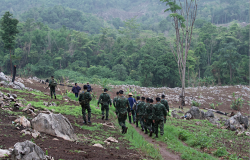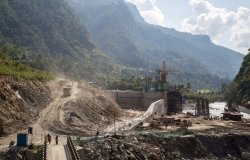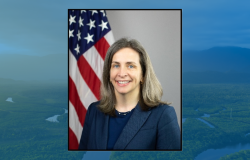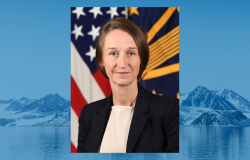Climate Diplomacy Demands Practical Partnerships
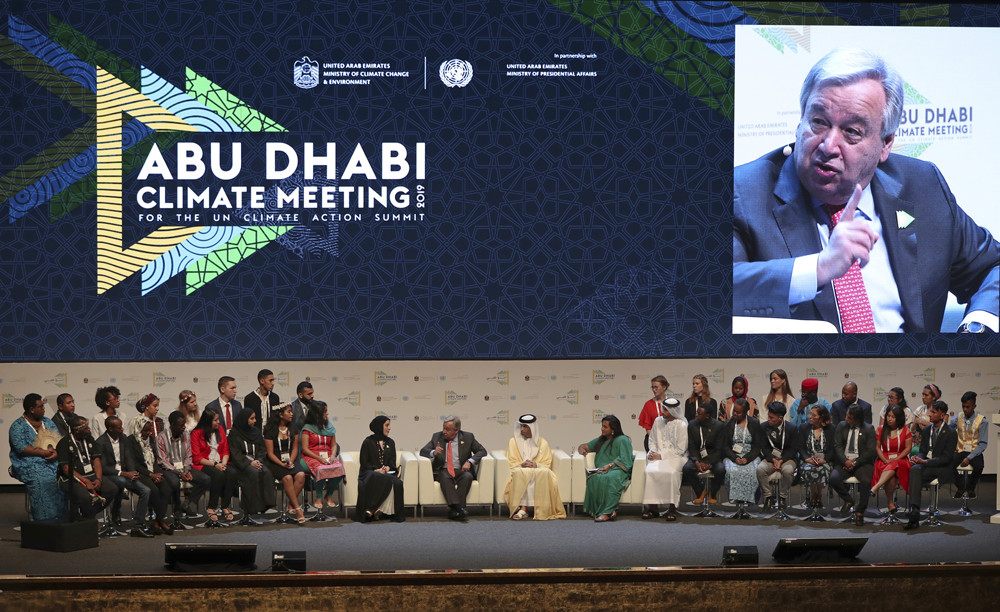
AP Photo/Kamran Jebreili
At the beginning of November, the UN Climate Change Conference, also known as COP26, will open in Glasgow, Scotland. As each day passes and the conference creeps closer, the need to find sustainable, long-term, practical solutions to unveil becomes more urgent. The existing climate change challenge cannot be overstated, and the reality hard to overestimate. The truth of our predicament lies in worrying reports that we will return to, or even surpass, pre-COVID emissions levels as the world unlocks over the coming months. NASA tells us that, despite our efforts so far, the last seven years were the warmest on record. The demand, therefore, to throw all available resources at the climate crisis is unavoidable.
While individual nations must approach COP26 with well thought out, ambitious goals and commitments, it is in collaboration and partnership that many of the real solutions lie. This cannot and does not start or end in Glasgow, however. Harnessing and joining-up expertise across sectors, countries, and regions need to be part of the build-up and attempt to gain momentum. The platform for a successful COP26 must be constructed now. This will not only make dialogue at Glasgow more fruitful but also ensure that momentum continues thereafter.
The European Green Deal is a prime example of the kind of cooperative, long-term, large-scale thinking required, with its clear goals and targets. A comprehensive plan, applicable across 27 nations, with ambitious targets on phasing out of fossil fuels, ramped-up investment in clean energy, and a clear role for the private sector, it is a good example of the kind of multi-nation, multi-industry thinking that must be in evidence across the globe.
But there are other regions working to build partnerships, bringing together countries around an approach that offers sustainable solutions. One of these was on display recently when the U.S. Special Presidential Envoy for Climate, John Kerry, visited Abu Dhabi for the UAE Regional Dialogue for Climate Change. As Kerry said during his visit, there is “no reason why oil-producing countries cannot also be a key part of tackling the climate crisis.” In this case, eleven countries, including Iraq, Qatar, Egypt, and Morocco, met under the leadership of the Emirati Climate Change Envoy, Dr. Al Jaber, to share ideas and discuss long-term, broader commitments to sustainable development. The UAE is well placed to coordinate a group of countries that have not always found collaboration straightforward. The country has positioned itself as the key player to shape, and arguably transform, the sustainability movement within the region, as well as the obvious host of choice on a range of issues. It is well placed to coordinate a group of countries that have not always found collaboration straightforward.
The fact of the meeting and its discussions are valuable, but as John Kerry himself made clear during the visit, it is important “to turn political commitments into practical solutions.” Fortunately, within Abu Dhabi, there are some good examples, not least the world’s largest single-site solar project, and the engagement of the University curriculum in sustainability. This adds to the credibility of the UAE’s claim to be the Mid-East’s lead climate action convenor. The marker of success will be bringing other neighboring oil-producers along with them in making a more effective, tangible contribution to the global climate fight.
Diplomacy is going to be crucial to global efforts to address climate change. Failure is simply not an option. The more examples of good practice, innovation, and success that can be highlighted, the more likely others will be encouraged to step up. Expectations for U.S. leadership on the global fight for the planet are high—particularly since President Biden’s election—and visits by the climate envoy send a powerful message. But it is the practical effects of this convening power that will make or break climate action. The more these efforts are undertaken in partnership, the greater the potential for scaling up. This is the time for an upward shift in momentum, to put climate change at the heart of all foreign policy and diplomacy, and for convenors to encourage regional and international partners to do the same. A successful COP26 and beyond depends on it.
Sources: COP26, European Commission, NASA, U.S. Department of State
About the Author
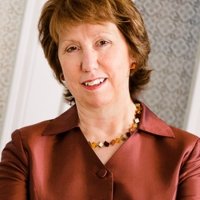
Baroness Catherine Ashton
Former Vice President of the European Commission and former High Representative of the EU for Foreign Affairs and Security Policy

Environmental Change and Security Program
The Environmental Change and Security Program (ECSP) explores the connections between environmental change, health, and population dynamics and their links to conflict, human insecurity, and foreign policy. Read more

Middle East Program
The Wilson Center’s Middle East Program serves as a crucial resource for the policymaking community and beyond, providing analyses and research that helps inform US foreign policymaking, stimulates public debate, and expands knowledge about issues in the wider Middle East and North Africa (MENA) region. Read more



